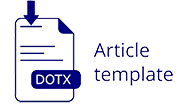BLENDED LEARNING BASED GOOGLE CLASSROOM USED TO IMPROVE THE STUDENTS’ READING COMPREHENSION
Abstract
Keywords
Full Text:
PDFReferences
Barrett, K. A. A. (2018). EFFECTIVENESS OF GOOGLE CLASSROOM : TEACHERS ’. 2(2), 52–66.
Beal, Vangie . (2020). Google Classroom. Editor of webopedia.
Belitung, B., & Wantoro, S. (2019). Blended Learning ; Integrating Moodle to Facilitate Reading Comprehension Activities. 1(1), 11–26.
Chams Eddine Lamri. (2018). Developing ELP Students’ Reading Skills through a Blended Learning Approach. 4(2), 389–407. https://doi.org/10.32601/ejal.464204
Donald Yates (2017) Google Classroom Easiest Teacher's Guide to Master Google Classroom. Copyright 2017 by Donald Yates - All rights reserved. https://www.pdfdrive.com/google-classroom-easiest-teachers-guide-to-master-google-classroom-google-classroom-app-google-classroomfor teachers-google-classroom-book-1-d158049011.html. aceessed on December 22nd, 2022.
Dziuban, C., Graham, C. R., Moskal, P. D., Norberg, A., & ... (2018). Blended learning: The new normal and emerging technologies. International Journal of …, 15(1), 1–16. https://doi.org/10.1186/s41239-017-0087-5
Ghazizadeh, T. (2017). The Effect of Blended Learning on EFL Learners ’ Reading Proficiency. 8(3), 606–614.
Gilakjani, A. P. (2017). How Can Students Improve Their Reading Comprehension Skill ? June. https://doi.org/10.5296/jse.v6i2.9201
Inoue & Pengnate. (2018). Belief in foreign language learning and satisfaction with using Google Classroom to submit online homework of undergraduate students.2018 5th International Conference on Business and Industrial Research.
Liu, H. C., & Chuang, H. H. (2016). Integrating Google Classroom to Teach Writing in Taiwan. Minnesota eLearning Summit.
Mahmud, M. M., Ubrani, M. B., & Foong, W. S. (2020). A meta-analysis of blended learning trends (Issue May, pp. 30–36). Association for Computing Machinery. https://doi.org/10.1145/3377571.3379439
Meliawati. (2014). DEVELOPING BLENDED LEARNING BASED READING MATERIALS FOR THE TENTH GRADE MULTIMEDIA STUDENTS OF SMK WIRA HARAPAN. 2, 1–11.
Nizal, I., Shaharanee, M., & Jamil, J. M. (2016). Google classroom as a tool for active learning. August. https://doi.org/10.1063/1.4960909
Rabbi, M. F., Zakaria, A. K. M., & Tonmoy, M. M. (2018). Teaching Listening Skill through Google Classroom : A Study at Tertiary Level Teaching Listening Skill through Google Classroom : A Study at Tertiary Level in Bangladesh. August.
Rahman, S., Tri, R., Ismet., B., & Meini, S.S. (2020) The Implementation of Blended Learning Model on Motivation and Students' Learning Achievement. IJEVS: International Journal for Education and Vocational Studies, 2(9), 757-775. https://doi.org/10.29103/ijevs.v2i9.2694
Ridlo, A. . (2020). Exploiting Sq4r Cooperative Learning Method To Enhance Efl Students’ Reading Comprehension. Edulingua: Jurnal Linguitiks Terapan Dan Pendidikan Bahasa Inggris, 7(1), 1–12.
Rovai, A. P., & Jordan, H. (2004). Blended learning and sense of community: A comparative analysis with
traditional and fully online graduate courses. The International Review of Research in Open and Distributed Learning, 5(2).
Sugiyono. (2017). Metode Penelitian Pendidikan Pendekatan Kuantitatif, Kualitatif Dan R&D. Alfabeta.
Sukmawati & Nensia (2019) The Role of Google Classroom in ELT. IJEVS: International Journal for Education and Vocational Studies,1(2), 142-145. https://doi.org/10.29103/ijevs.v1i2.1526.
Varita, D. (2017). IMPROVING READING COMPREHENSION THROUGH LITERATURE. 2013, 234–244.
DOI: https://doi.org/10.34001/edulingua.v9i2.3888
Article Metrics
Refbacks
- There are currently no refbacks.

Ciptaan disebarluaskan di bawah Lisensi Creative Commons Atribusi 4.0 Internasional.











